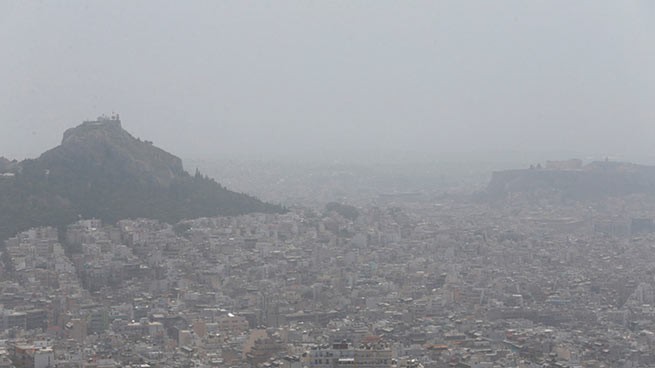In recent hours, the concentration of African dust in the atmosphere of our country has increased, and the Hellenic Respiratory Society has addressed the population of the country with instructions.
In particular, it calls on citizens and especially people belonging to vulnerable and sensitive groups to be especially careful. According to the Hellenic Respiratory Society, African dust contains particulate matter that can combine with pollen, bacteria and fungi, creating a highly toxic and dangerous mixture for the human body and especially the respiratory system.
According to measurements carried out during 2013 in Athens and Chalkidiki, dust blown from Africa brings to our country toxic substances such as lead, zinc, chromium, vanadium, arsenic and nickel, the content of which is unexpectedly high.
This issue causes great concern in the scientific community about the consequences that the transfer of “toxic” African dust will have on human health and the environment, since African dust is currently present throughout Greece, and in addition, a further increase in its quantity is expected in future.
African dust has already been linked to health problems among the Greek population, as it has been noted that on days with high concentrations of dust in the air, hospital admissions of patients suffering from respiratory and heart diseases increase. Among the recommendations of the Lung Association:
- During periods of highest dust concentration, both unnecessary travel and outdoor exercise should be avoided, and it is recommended to stay in well-ventilated areas.
- If clinical symptoms appear, such as, for example, difficulty breathing, a strong and irritating cough with possible expectoration, chest pain, persistent sneezing, watery eyes and gagging, you should immediately seek medical help and advice.
- We strongly recommend that patients suffering from chronic respiratory diseases, such as chronic obstructive pulmonary disease (COPD) and bronchial asthma, if symptoms consistent with an exacerbation or worsening of a stable course of the disease appear, are in constant contact with their doctor for possible modification of medications and obtaining additional medical care.
Experts from the ministries of environment and health advise, among other things, to avoid contact with dust. In cases where dust concentrations exceed safety limits, people with respiratory conditions, heart disease, children and people over 65 years of age should avoid all outdoor physical activity. In addition, you should avoid spending time outdoors, especially in areas with heavy traffic. People with asthma may need more frequent inhalations of a medication to reduce their symptoms. If symptoms persist, it is recommended to consult your doctor.







More Stories
The most dangerous areas of Athens
Dangers: how to avoid becoming a victim of a pickpocket
How to drive in extreme heat – video